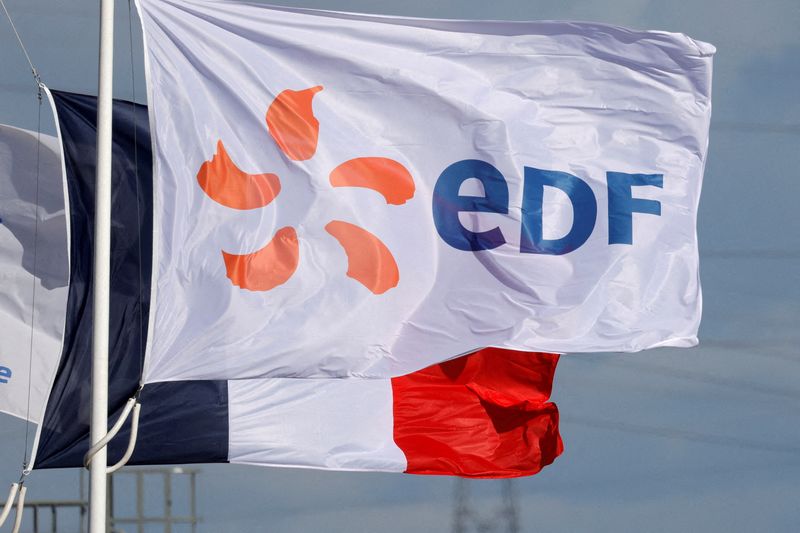By Benjamin Mallet and Elizabeth Pineau
PARIS (Reuters) -France will pick the new boss of state-controlled power giant EDF (EPA:EDF) in the next few days, the finance minister said on Tuesday, as the group confronts a record number of nuclear reactor outages that are aggravating Europe's energy crisis.
The Paris government announced the full nationalisation of EDF, in which the state already owns 84%, in July and also said it was looking for a new chief executive to replace Jean-Bernard Levy, who has been at the helm since 2014.
"We have short-listed a number of people, I have submitted the names to the prime minister and the president of the republic who will decide in the coming days who will take the reins of EDF," Finance Minister Bruno Le Maire told BFM TV.
Sources have said candidates include Patrice Caine, chairman and CEO of defence electronics company Thales and Philippe Knoche, managing director of nuclear fuel group Orano. Le Figaro newspaper on Tuesday tipped Luc Remont, in charge of international operations at Schneider Electric (EPA:SCHN), for the job.
EDF top executives Cedric Lewandowski and Bruno Bensasson have also been mentioned, although two sources told Reuters the government was likely to prefer an outsider to mark a break with the past.
EDF has faced a litany of problems this year, helping push electricity prices to record highs as European countries scramble to replace Russian gas as France - long the region's largest exporter of power - has turned into a net importer.
Thirty of its 56 reactors in France are currently offline due to planned maintenance and work to repair corrosion, with analysts saying EDF's pledge to get the reactors back online in time for the winter may be too optimistic.
President Emmanuel Macron and Levy, the EDF boss, have been trading blame for the reactor fiasco.
Levy told a business conference last month that EDF did not have enough skilled workers to repair the faulty reactors as the government had for years told the company it needed to downsize its fleet to reduce France's reliance on atomic energy.

Macron snapped back angrily on Monday, calling those comments "irresponsible", saying that he was the one who had postponed by 10 years, to 2035, plans to cut the share of nuclear in France's electricity generation mix to 50% from around 70% now.
In what some critics say was a policy U-turn, Macron announced in February that France would build at least six new nuclear reactors in the decades to come, placing nuclear power at the heart of his country's drive for carbon neutrality by 2050.